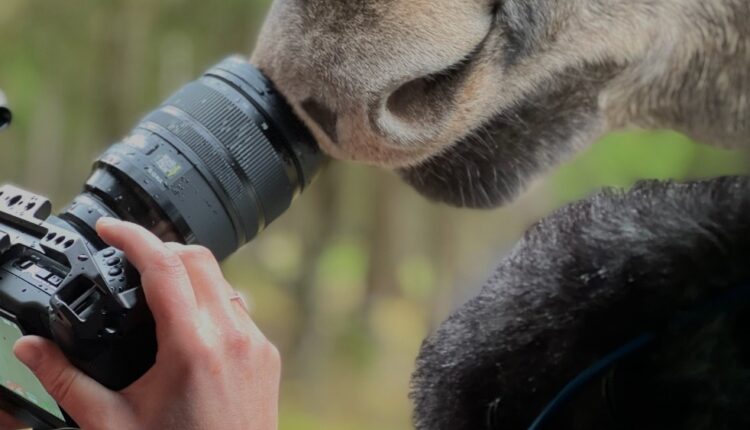Hana Novakova, a documentarian and ethnozoologist, says she first became obsessed — her word — with the moose when a remarkable event transpired in the Czech Republic.
“It all started in 2003 when I first heard the story of the unbelievable spontaneous return of the moose population to my homeland, the Czech Republic, after 500 years of them being extinct here,” she tells Variety.
Five years later, while studying at Prague’s venerated FAMU film school, her interest hadn’t lessened a bit — leading her, after a tortuous but relentless trek, to this week’s world premiere of “Amoosed” in the Ji.hlava doc fest’s Czech Joy section.
Determination was indeed needed: funders were not too receptive to her pitch, Novakova says, and COVID lockdowns were on the horizon, preventing her from filming abroad.
“And yet again, the following diplomatic crisis between the Czech Republic and Russia in 2021 plus the war Russia started a year later made further filming in Russia impossible.”
With moose sightings in the Czech Republic still extremely rare, Novakova had tracked down a Russian nature preserve in the Kostroma region that raised the majestic ungulates (and that had once served as an anti-rocket defense installation).
“The first time I was able to see the moose in the wild was in Russia, in the domestication station where they let them roam freely.”
The Russian team had also managed to establish a way to extract milk from a moose by having them exposed to humans at birth, rather than allowing them to be raised by their mothers.
She visited the area in 2016 and recorded some material, later used in “Amoosed,” but the expedition was intended as more of a scouting trip, she says.
But with the war, her plans to return years later were off the table.
“It forced us to use much more material from the scouting than we intended.”
With at least a decade invested in the film, including later trips to Nova Scotia, where indigenous people of the Mi’kmaq nation helped guide Novakova to local moose homelands, the director steadily accumulated more material – and it proved sufficient to overcome the setbacks.
“I am not able to count the time I’ve put into it anymore,” Novakova says. “I simply try to perceive the making of this film as a part of my personal evolution as a human being, however pathetic it might have sounded.”
Novakova’s background as a scientist helped her find the structure for her quest story, she says.
“First, I introduce my childhood hero, the classical zoologist. With other scientists on the scene, like the Russian laser physicist, it becomes clear that to be able to fully grasp the mystery of the moose, a person needs a bigger and different mojo than just a diploma in zoology.”
Focusing on the bigger questions was key, along with maintaining perspective, Novakova says.
“I realized that I really need to let go and wait patiently, going where the animal tries to get me — which was Nova Scotia, Canada, and the encounter with Cheryl, the Mi’kmaq matriarch, that kind of changed my life.”
Novakova underwent ritual cleansing with herbal smoke before being welcomed to the wild terrain to film. She was told by Cheryl that “special animal omens” had been witnessed for her project. It seemed the moose community was OK with “Amoosed.”
The moose also makes for a complex and mysterious central character, to be sure. Many questions about its life in the wild are still not fully answered, it seems. But much has been learned over the years, including at least two fascinating facts, Novakova says.
First, sometimes one moose will migrate, while another from the same area will not – something, Novakova says, that may well just come down to an animal’s personality.
Secondly, their diet is so diverse as they graze on a wide variety of plants that keeping them healthy in captivity, even with a nutritious diet, has proven “nearly impossible.”
“The only enigma to me is, why do we still keep doing it? Would we do it to a human being if we knew all facts? Certainly not.”
“The message I want to send is purely positive,” Novakova says. “I think animals can be our most amazing teachers, who can even guide us out of the crisis of being disconnected from our Mother Earth and from ourselves, if we are willing to follow them and listen to them.”

“Amoosed”
Courtesy of LaDamplinque


